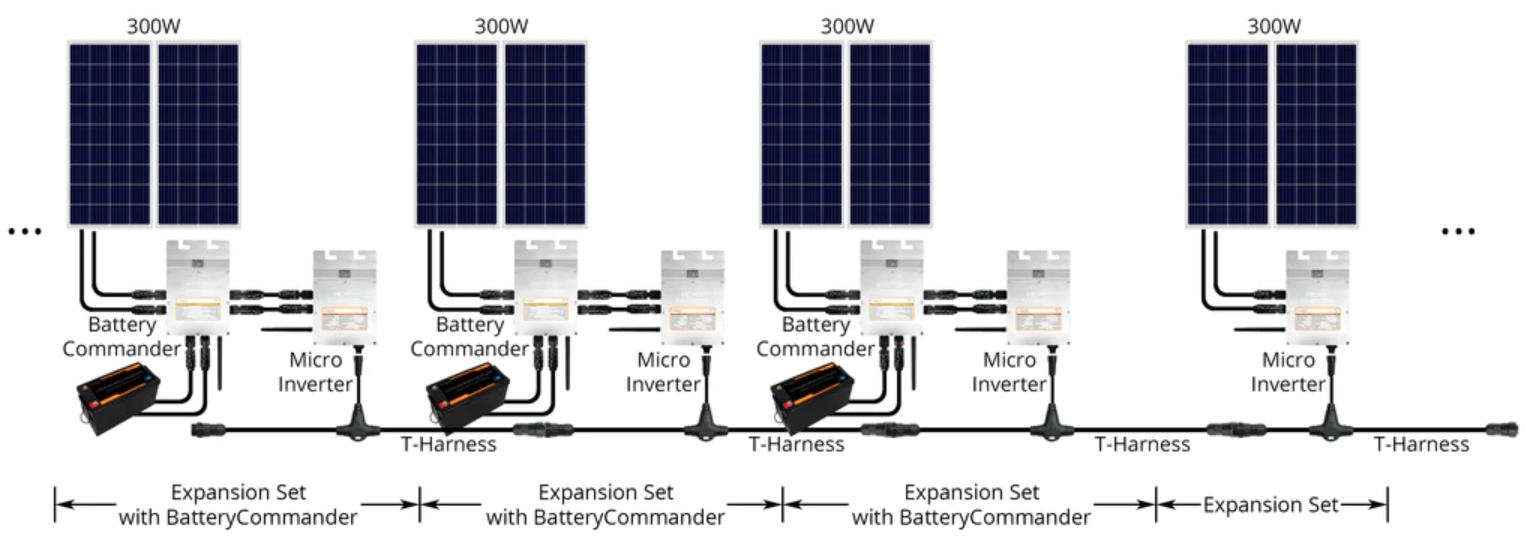
Micro inverter solar technology is significantly changing the solar energy game, particularly in residential and small-scale commercial solar installations. Let’s explore how this technology is making a difference:
1. Increased Energy Efficiency
- Panel-Level Optimization: Unlike traditional string inverters, micro inverter solar operate at the panel level. This means each solar panel’s output is optimized individually. If one panel is shaded or underperforming, it doesn’t drag down the performance of the entire array.
- Reduced Losses: In systems with central inverters, power loss can occur due to mismatched panels or partial shading. Micro inverter solar mitigate these issues, ensuring more efficient energy production.
2. Enhanced Flexibility and Scalability
- Easier Expansion: Adding more panels to a system with micro inverter solar is straightforward since each new panel comes with its own inverter.
- Adaptability to Space Constraints: Homes with limited or irregular roof space can benefit greatly, as micro inverter solar allow for a more flexible panel arrangement.
3. Improved Safety
- Lower Voltage Levels: Micro inverter solar convert DC to AC right at the panel, significantly reducing the risk associated with high-voltage DC electricity running through the roof and into the home.
- Enhanced Safety Standards: This lower voltage operation aligns better with fire safety standards, offering peace of mind to homeowners.
4. Advanced Monitoring and Maintenance
- Individual Panel Monitoring: Homeowners can monitor the performance of each panel individually. This granular level of data helps in early detection of issues or underperformance.
- Easier Troubleshooting: Identifying and replacing a faulty micro inverter solar is generally simpler than diagnosing problems in a string inverter system.
5. Improved Aesthetics
- Compact Size: Micro inverter solar is small and attach directly to the back of each panel, leading to a cleaner and more aesthetic installation without large inverters mounted on the side of the house or in the garage.
6. Economic Benefits
- Long-Term Savings: While the initial cost may be higher, the increased efficiency and lifespan of micro inverter solar systems can lead to greater energy production and savings over time.
- Reliability and Longevity: Micro inverter solar typically have a longer lifespan than central inverters, which means less frequent replacement and potential cost savings in the long term.
7. Environmental Impact
- Maximized Green Energy Use: By optimizing each panel’s output, micro inverter solar ensure more solar energy is converted and used, contributing to a reduction in fossil fuel reliance and greenhouse gas emissions.
Conclusion
Micro inverter solar technology is a game-changer in the solar industry. It offers numerous advantages, including increased efficiency, safety, flexibility, and monitoring capabilities. These benefits are making solar power more accessible and appealing to a broader range of homeowners and small businesses, potentially accelerating the shift towards renewable energy sources.
